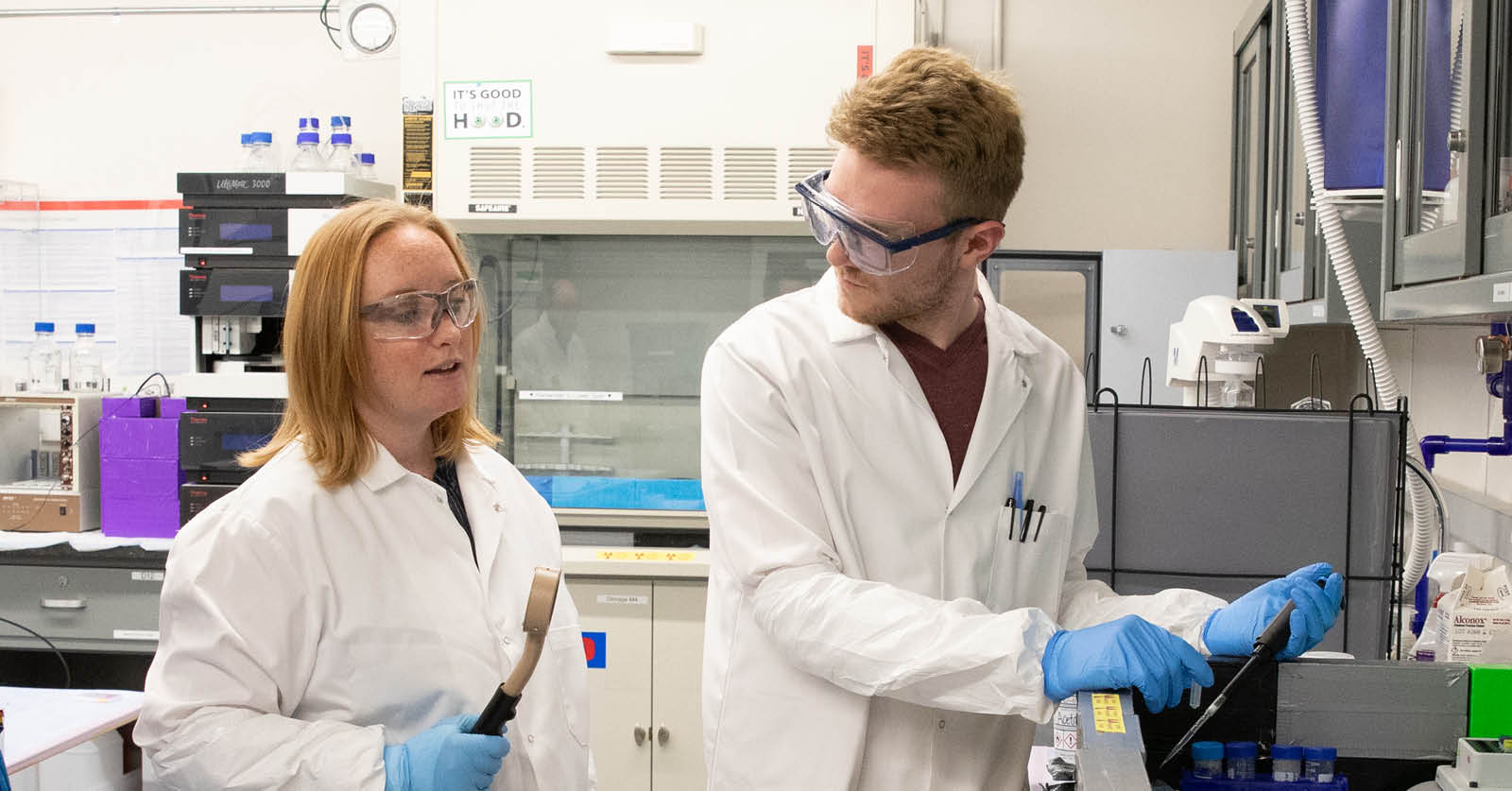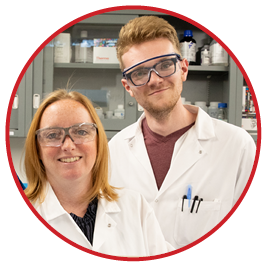Innovative Alzheimer’s Treatment Developed at the U Featured in Journal of Nuclear Medicine
Alzheimer’s disease, a debilitating brain disorder with limited treatment options, has long challenged researchers. Specifically, researchers have struggled with slowing the buildup of amyloid beta plaques, harmful clumps in the brain that exacerbate the disease by damaging brain cells and causing memory loss.
Recently, researchers from the University of Utah’s Nuclear Engineering Program (UNEP), in collaboration with Dr. Andrew Roberts of the Department of Chemistry and Drs. Satoshi Minoshima and Donna Cross of the Department of Radiology, have developed a groundbreaking approach to tackle these plaques. Inspired by cancer treatment methods, their innovative technique utilizes tiny particles known as alpha particles to break down chemical bonds in amyloid beta plaques. This method, called Targeted Alpha Therapy (TAT), delivers these particles directly to the harmful areas while minimizing damage to healthy tissues.
Dr. Aidan Bender, a UNEP PhD graduate, spearheaded this pioneering research on Alzheimer’s disease. His remarkable work is being published in the Journal of Nuclear Medicine, the premier journal in the field.
Dr. Tara Mastren, an Assistant Professor at UNEP, expressed immense pride in her former student’s significant contributions.
“Aidan excelled in research and developed many skills and techniques needed to tackle this study,” said Dr. Mastren. “The research from his publication is the first step in determining if this treatment method is feasible and has allowed us to move into testing in vivo models.”
Additionally, this research received funding from the University of Utah’s 1U4U initiative, which aims to bring together research and projects from health sciences and the U’s main campus to increase their societal impact. 1U4U’s support of this project underscores the value of Dr. Bender’s contributions.
The Research’s Real-World Impact: A New Hope for Alzheimer’s Patients
To apply this theoretical nuclear medicine to treating the disease, Dr. Bender’s team, under the supervision of Dr. Mastren, started by developing a chemical compound that can latch onto to the harmful amyloid beta plaques, called BiBPy.
After developing this new compound, they attached a small amount of a radioactive element, bismuth-213. This makes the compound capable of emitting alpha particles. This new compound, [213Bi]-BiBPy, was applied to the brain tissue of mice that are genetically modified to develop amyloid plaques similar to those in Alzheimer’s patients.
The compound, when combined with bismuth-213, successfully developed properties that made it effective at binding to the amyloid plaques in the mice’s brain tissue.
Measured using two types of tests that check for the presence of amyloid beta, the treated brain tissues showed a significant reduction in amyloid beta concentration. These results suggest that the compound can be effectively applied as a potential Alzheimer’s treatment, paving the way for further tests in live animals and eventually in humans.
Future Directions: Advancing Nuclear Medicine
During his time at the U, Aidan Bender worked in the Mastren Lab developing small-molecule radiopharmaceuticals for applications in cancer and Alzheimer’s disease. Upon earning his PhD, he joined the Center for Quantitative Cancer Imaging at Huntsman Cancer Institute as a Research Associate, where he continues this significant work.
Currently, Dr. Bender is working on radiopharmaceutical development for cancer imaging and therapy. By harnessing cyclotron-produced therapeutic radionuclides, auger electron therapy, and PET radiometals, his work is providing powerful tools for detecting, diagnosing, and treating cancer.
Outside of the lab, Aidan enjoys writing speculative fiction and hiking with his wife and dogs.
Nuclear Engineering at the University of Utah
The Utah Nuclear Engineering Program (UNEP) is responsible for educating the next generation workforce in critical nuclear engineering fields and developing innovative procedures and technologies for the advancement of nuclear applications.
Our curriculum is designed for engineers and scientists involved in the nuclear power and radioactive waste industries, nuclear medicine, homeland security, radiation safety, and nuclear materials detection. We offer an undergraduate minor and two graduate degrees (M.S. non-thesis and Ph.D. in Nuclear Engineering).
More news from our department:

New Nuclear Methods
University of Utah Research is Improving Radiation Detection Congratulations to Taylor Kimball, A PhD student in Nuclear Engineering at the University of Utah, whose research has been published in the prestigious Nuclear Technology journal! Kimball’s innovative work introduces a new method to create calibration standards for use in radiation detectors at radioxenon measurement labs, which […]
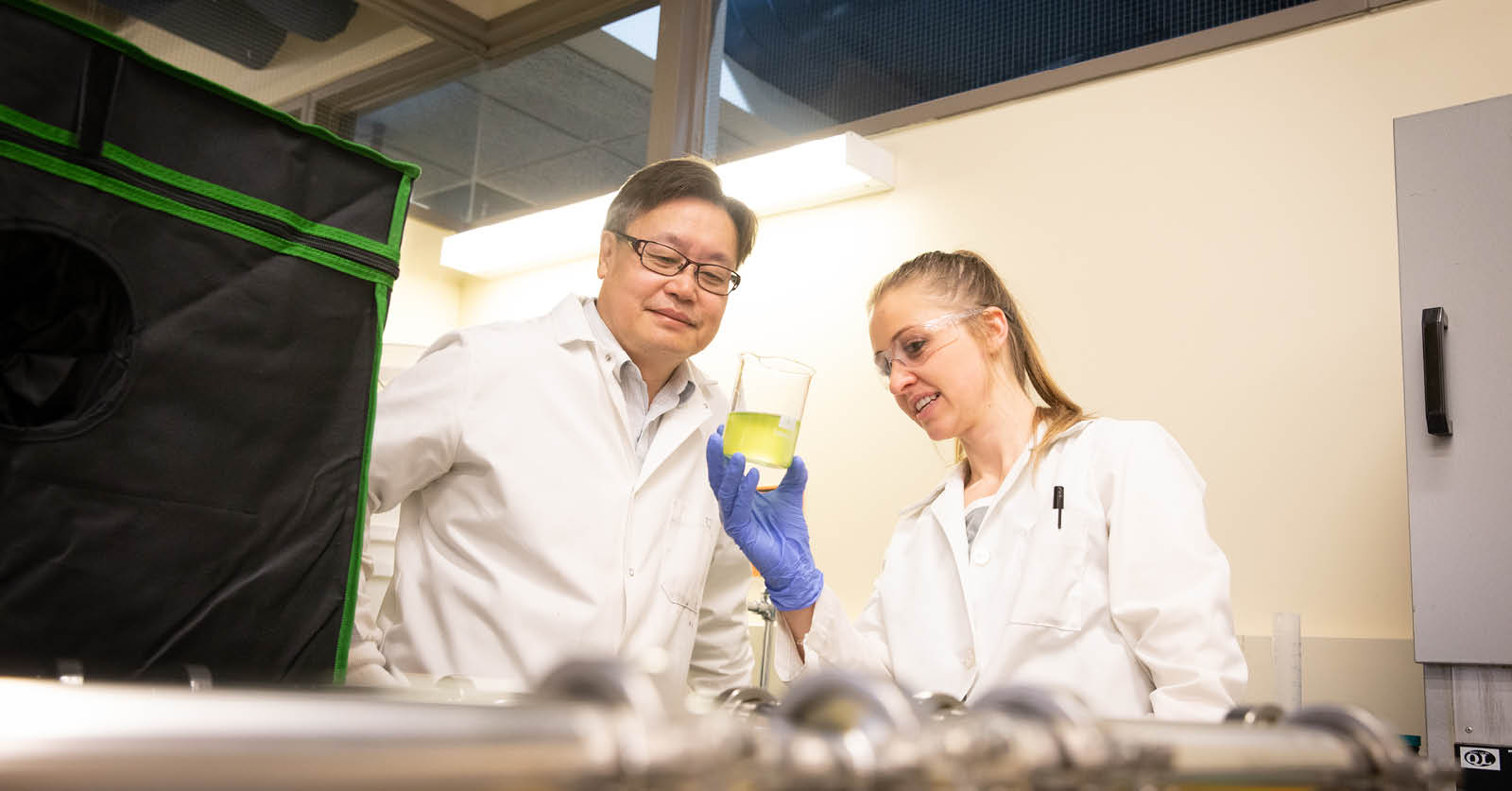
Nanobubbles: Tiny Powerhouses with Huge Potential
University of Utah Environmental Engineering Professor is at the Forefront of New Nanobubble Technology Peculiarly powerful, nanobubbles have opened a new frontier in science and engineering, creating promising environmental and medical applications. But what exactly is a nanobubble? Imagine a tiny water bubble that’s 2,500 times smaller than a single grain of salt. Then imagine […]
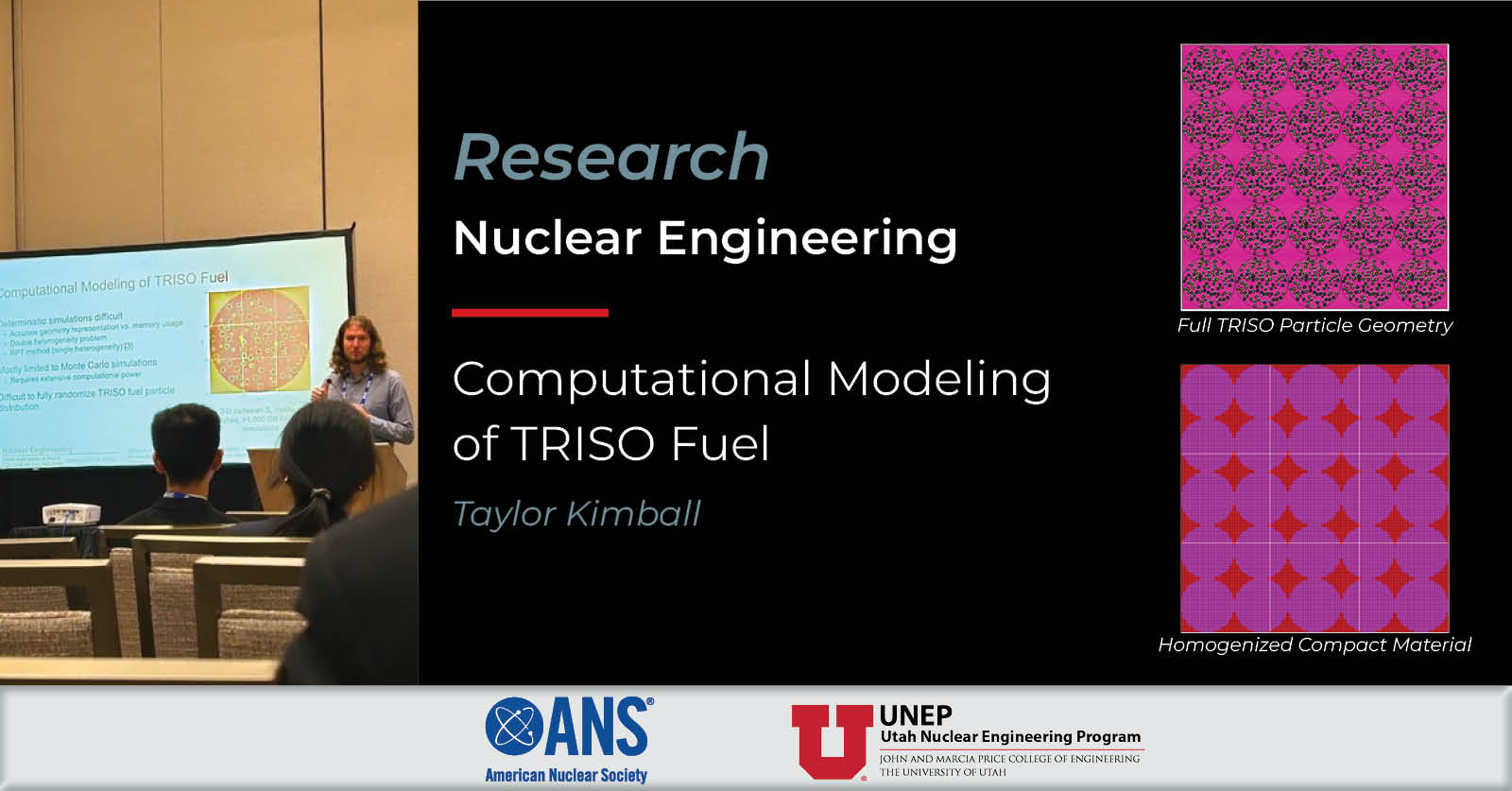
U’s Nuclear Engineering Program Shines at 2024 ANS Annual Conference
PhD Candidate Taylor Kimball’s Introduces New Reactor Efficiencies The 2024 American Nuclear Society (ANS) Annual Conference, a leading event for nuclear science and engineering professionals, took place in Las Vegas, NV from June 16-19, 2024. This year’s theme, “All In on Nuclear Deployment: The Stakes Have Never Been Higher,” emphasized the critical importance of nuclear […]
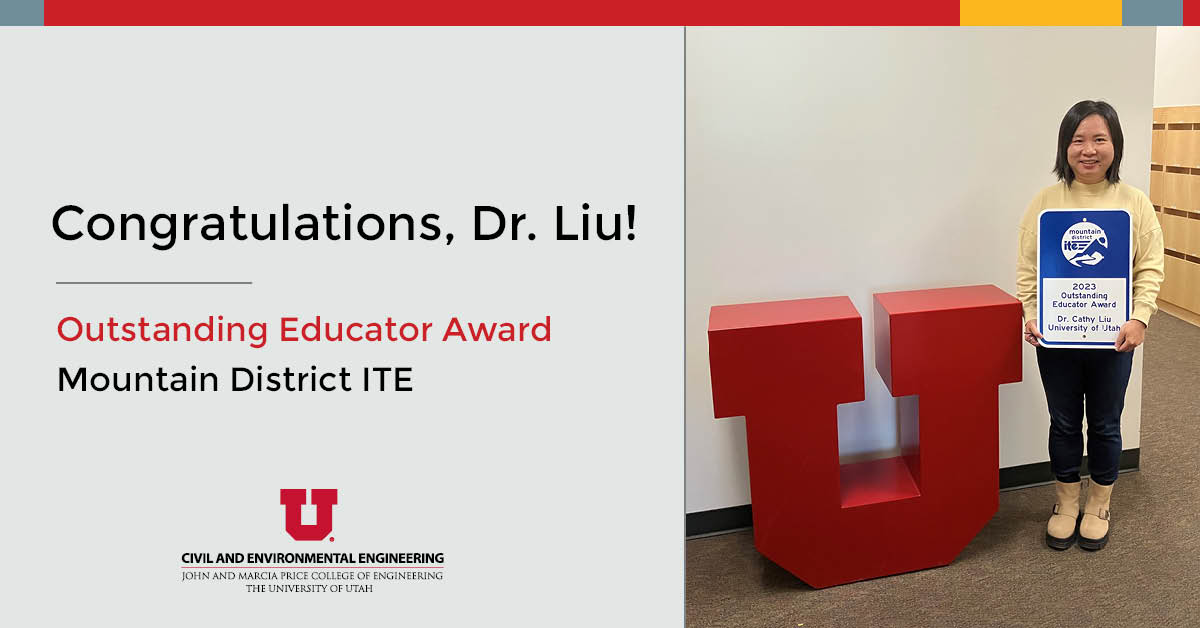
Dr. Cathy Liu Earns Prestigious Educator Award
CvEEN Professor Earns 2023 Outstanding Educator Award The Institute of Transportation Engineers (ITE) is a global organization dedicated to improving transportation systems and creating smarter, more livable communities. Within this vast network, the Mountain District ITE represents the U.S.’s mountain states and recognizes outstanding educators in the field. Dr. Cathy Liu has been honored with […]

